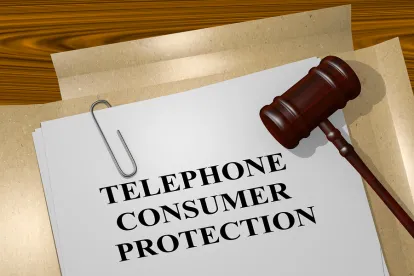Settlements and verdicts of millions of dollars (often more) are frequent under the Telephone Consumer Protection Act (“TCPA”). Statutory damages of $500 - $1500 per violation can quickly add up to significant liability. One of the most contested TCPA issues is what constitutes an automatic telephone dialing system (“ATDS”). Changing technologies and divergent district court rulings have created a patchwork of often inconsistent interpretations. Recently, several courts have construed the TCPA’s autodialer requirement that may slow the increase of liability under the Act. Specifically, the Third, Seventh, and Eleventh Circuit Courts of Appeal have interpreted the ATDS element more narrowly than the Ninth Circuit’s construction. This widening circuit split continues to provide an opportunity for the Supreme Court to settle the issue.
With some exceptions, the TCPA prohibits making any calls or sending any text "using any automatic telephone dialing system. . . to any telephone number assigned to a . . . cellular telephone service.” 47 U.S.C. § 227(b)(1)(A)(iii). The TCPA defines an ATDS as “equipment that has the capacity – (A) to store or produce telephone numbers to be called, using a random or sequential number generator; and (B) to dial such numbers.” 47 U.S.C. § 227(a)(1).
The majority of courts agree that the basic function and defining characteristic of an ATDS is the capacity to dial numbers without human intervention. However, for several years, courts have split on whether, for a dialing system to constitute an ATDS, the system itself must be able to generate the telephone numbers it calls randomly or sequentially, or whether simply dialing from a list of targeted numbers is enough.
The Third, Seventh, and Eleventh Circuit Courts of Appeal have held recently that an ATDS means a device that uses a random or sequential number generator to either store or produce numbers. The defendants claimed that their systems were not autodialers because they did not “store” or “produce” telephone numbers “using a random or sequential number generator” before dialing. In response, the plaintiffs argued that the TCPA prohibits “stor[ing]” telephone numbers or “produc[ing]” telephone numbers “using a random or sequential number generator” – in other words, that storing the numbers before dialing (even if not using random or sequential number generator) violates the statute. The courts agreed with the defendants, emphasizing the statute’s use of a comma before the clause “using a random or sequential number generator,” indicated that the clause was intended to modify both verbs. The rulings follow a logical and reasonable interpretation of the TCPA that limits its reach to the type of conduct the statute was intended to combat, which is the spam communications from unknown callers. Gadelhak v. AT&T Services, Inc., 2020 WL 808270 (7th Cir. Feb. 19, 2020); Glasser v. Hilton Grand Vacations, 948 F.3d 1301 (11th Cir. 2020); Dominguez v. Yahoo, 894 F.3d 116 (3rd Cir, 2018). The growing number of circuit courts and district courts continue to give the TCPA its intended, natural construction. These courts also recognize that other interpretations unnaturally expand TCPA. The Gadelhak court even highlighted the “far-reaching consequences” of the Ninth Circuit’s reading (discussed below) that creates potential TCPA liability for many otherwise innocent text messages.
Contrary to these courts, others have explored a platform’s capability to store and send text messages without human intervention at the time of dialing as the quintessential feature of an ATDS. For example, in Marks v. Crunch San Diego, LLC, 904 F.3d 1041 (9th Cir. 2018), the Ninth Circuit described the defendant’s text messaging platform as operating as follows:
Phone numbers are captured and stored in one of three ways: An operator of the Textmunication system may manually enter a phone number into the system; a current or potential customer may respond to a marketing campaign with a text (which automatically provides the customer’s phone number), or a customer may provide a phone number by filling out a consent form on a Textmunication client’s website.
When [the defendant] wants to send a text message to its current or prospective customers, a[n] . . . employee logs into the Textmunication system selects the recipient phone numbers, generates the content of the message and selects the date and time for the message to be sent. The Textmunication system will then automatically send the text messages to the selected phone numbers at the appointed time.
Without evaluating the specific level of human intervention, the court explained that human intervention of some sort is required before an autodialer can begin making calls, whether turning on the machine or initiating its functions and found that there was a genuine issue of fact as to whether the defendant’s platform was an ATDS. As might be expected, an explosion of TCPA cases followed in the wake of the Mark’s opinion, particularly in the district courts within the Ninth Circuit. And attorneys filing suits in other jurisdictions have urged those courts to track the Marks court reasoning.
Companies with text messages flowing to people in various jurisdictions can be left with significant uncertainty about their operations, and potentially substantial liability simply dependent upon the location of the recipient. The FCC still has before it a request to add meaning to how ATDS should be defined. But with a widening circuit split, there is more reason for the Supreme Court to consider the review and settle the ATDS issue.



 />i
/>i

